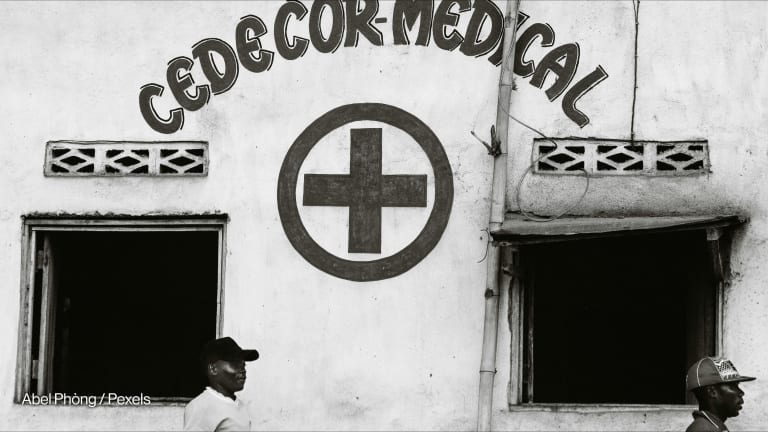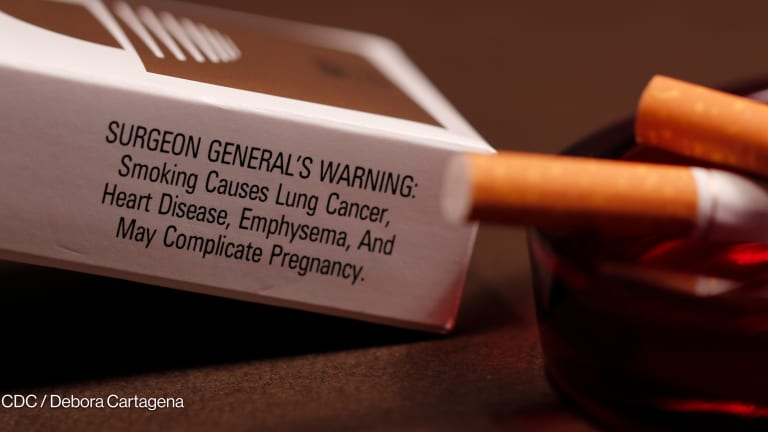
The world has the equivalent of a cheap vaccine to deal with one of the biggest preventable causes of death — but has yet to muster the funds and the political will to scale up deployment, particularly in low- and middle-income countries. That is the sad state of affairs with the global tobacco epidemic — yet it may be about to change.
For decades, global health has tended to focus on communicable diseases such as polio, tuberculosis, or HIV/AIDS. With the success of control efforts, we have reached the point where, now, almost 70 percent of all deaths around the world are caused by noncommunicable diseases — a catch-all term that includes heart diseases and stroke, diabetes, chronic lung diseases, and cancer.
In 2015, governments included NCDs among the world’s top development priorities by including target 3.a under the Sustainable Development Goals, calling on the global community to reduce deaths from these diseases by one-third by 2030.
This is an acknowledgement of both the enormous burden that these diseases place on the world’s health systems and economies, but also the immense opportunity that exists to eradicate poverty, protect human rights, and to create more resilient communities worldwide by preventing and managing them.
Opinion: Action to tackle tobacco in LMICs a moral and strategic imperative
Cancer now accounts for 8.9 million deaths a year and in low- and middle-income countries and survival rates are disappointingly low. Taking action to control preventable risk factors is low cost and effective, and yet political will — and finance — lag behind, writes Laura Hucks of Cancer Research UK on World Lung Cancer Day.
However, the world’s progress toward achieving the SDGs is threatened by global increases in tobacco use — a major preventable risk factor in the development of NCDs. There is increasing recognition of the fact that tobacco use is not only a health issue, but has important ramifications for other development issues including poverty, climate change, food security, and gender equality.
While many high-income countries have experienced decreases in tobacco use over the past few decades, the number of smokers worldwide has grown, due to the spread of the tobacco epidemic in many low- and middle-income countries around the world. If current levels of effort remain the same, tobacco use will kill about 1 billion people this century — most of them in LMICs.
These trends are particularly worrying given the long lag time between when people start smoking and when they become sick from cancers, heart, and lung diseases. The reality is that many countries are on track for an epidemic of gargantuan proportions, and will be saddled with the huge economic costs that come along with it. In 2012, the developing world shouldered 40 percent of the $1.436 trillion cost of smoking, a share that will surely grow unless current trends change.
The FCTC
The predicted future growth of the tobacco epidemic and the threat it poses to sustainable development in LMICs is strangely at odds with the fact that we know exactly what to do to address this risk factor.
We have the Framework Convention on Tobacco Control — an internationally negotiated, evidence-based package of measures that have been proven to work to reduce tobacco use around the world.
One hundred and eighty countries and the European Union have ratified the treaty, meaning they are legally obligated to take measures such as implement price and tax measures to reduce the affordability of tobacco products, to create smoke-free work and public spaces for citizens, and to restrict the tobacco industry’s efforts to market and promote their deadly products.
Since the FCTC entered into force in 2003, it has led to the uptake of tobacco control policies around the world that have had a measurable impact on reducing tobacco use. Nonetheless, big gaps still remain: According to a 2017 report by the World Health Organization, just 10 percent of the world’s population was covered by tobacco taxes at levels recommended by WHO, and just 20 percent lived in countries where public places are completely smoke-free.
Technical and financial support
Many countries have reported that they face major challenges in developing, implementing, and enforcing FCTC-compliant tobacco control policies and programs, which may in part explain the persistent gaps in FCTC implementation and a lack of progress in some regions.
One commonly cited challenge to progress is interference by the tobacco industry. There is a long and well-documented history of tobacco companies using a variety of tactics to obstruct, delay, and weaken the development and implementation of tobacco control measures. These tactics include funding and commissioning their own, often biased, research about the harms of tobacco use, direct and indirect political lobbying, bribery, and legal challenges, to cite just a few moves from their vast playbook.
In one recent example uncovered as part of a 2017 investigation led by The Guardian newspaper, a source claims that in Kenya, British American Tobacco paid bribes to government officials in a number of African countries to dilute or kill tobacco control regulations.
Perhaps the most pervasive challenge, however, is that national tobacco control programs in many LMICs are inadequately staffed and severely underresourced.
Despite the fact that tobacco control measures are among the most cost-effective public tools, there has also been a shocking lack of international investment in tobacco control. In a recent report, the Institute for Health Metrics and Evaluation pointed out that development assistance for tobacco control amounted to just $103.5 million in 2016.
Opinion: How tobacco control can boost sustainable development
Tobacco use is one of the world's leading causes of preventable death, responsible for more than 7 million deaths every year. Could a global treaty on tobacco control help accelerate progress across the SDGs? WHO's Andrew Black and Rodrigo Feijo Santos explain how.
This figure is appallingly low for an epidemic that kills 7 million people every year. For comparison, tuberculosis, which kills 1.7 million people per year, received $1.5 billion in development assistance in 2016. Similarly, development assistance for malaria, which is estimated to have caused 429,000 deaths worldwide in 2015, amounted to $2.5 billion in 2016.
Simply put, there is an enormous mismatch between the size of the tobacco “problem” and the amount of collective global effort that has been put toward addressing it. It’s clear that governments need practical and effective technical and financial assistance to overcome barriers to progress. The international community’s response must be commensurate with need.
Opportunities for international cooperation
There is some good news. This October, governments who are parties to the global tobacco control treaty will gather in Geneva, Switzerland, at the eighth session of the FCTC Conference of the Parties, where they will discuss and potentially endorse the world’s first Global Strategy to accelerate tobacco control and advance sustainable development.
If endorsed, the strategy will be an important tool to improve multilateral cooperation to combat the tobacco epidemic. It calls upon global actors, including the international development community, to take action to support governments develop their own comprehensive national tobacco control strategies, and to put a few key measures into place including raising taxes on tobacco products and putting health warnings on packages.
We must also seize the opportunity that will be presented at the United Nations High-level Meeting on NCDs, taking place next week, to raise awareness of this forthcoming plan among high-level attendees, and to highlight the potential it holds to serve as a roadmap to address a leading risk factor in the development of NCDs.
If the world is going to meet the targets set under the 2030 SDG agenda, it needs to get serious about tobacco control. The international community must rise to meet the challenge that this epidemic poses, including by providing the timely, effective, and practical financial and technical assistance that will be necessary to achieve a healthier, more sustainable world for all.
For more coverage of NCDs, visit the Taking the Pulse series here.










